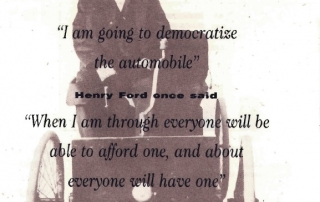Moving Forward With Fuel Economy Standards
Lee Schipper
In the early 1970s, the American Petroleum Institute had a slogan: “A nation that runs on oil can’t afford to run short.” Yet at the beginning of 1973, the US relied on oil for 46 percent of its energy supply, of which 32 percent was imported. Today we import about two thirds of the oil we consume. The price of crude oil in early 1973 was around $3 a barrel, and gasoline cost 39 cents a gallon. In 2009 dollars, those figures are close to $15 a barrel and $1.85 a gallon. Crude oil prices in early 2009 were still almost three times higher than in 1973. However, the fuel cost for driving a mile is less today than in 1973, because cars are more fuel-efficient and it takes thirty percent less fuel to go a distance today than in 1973.


